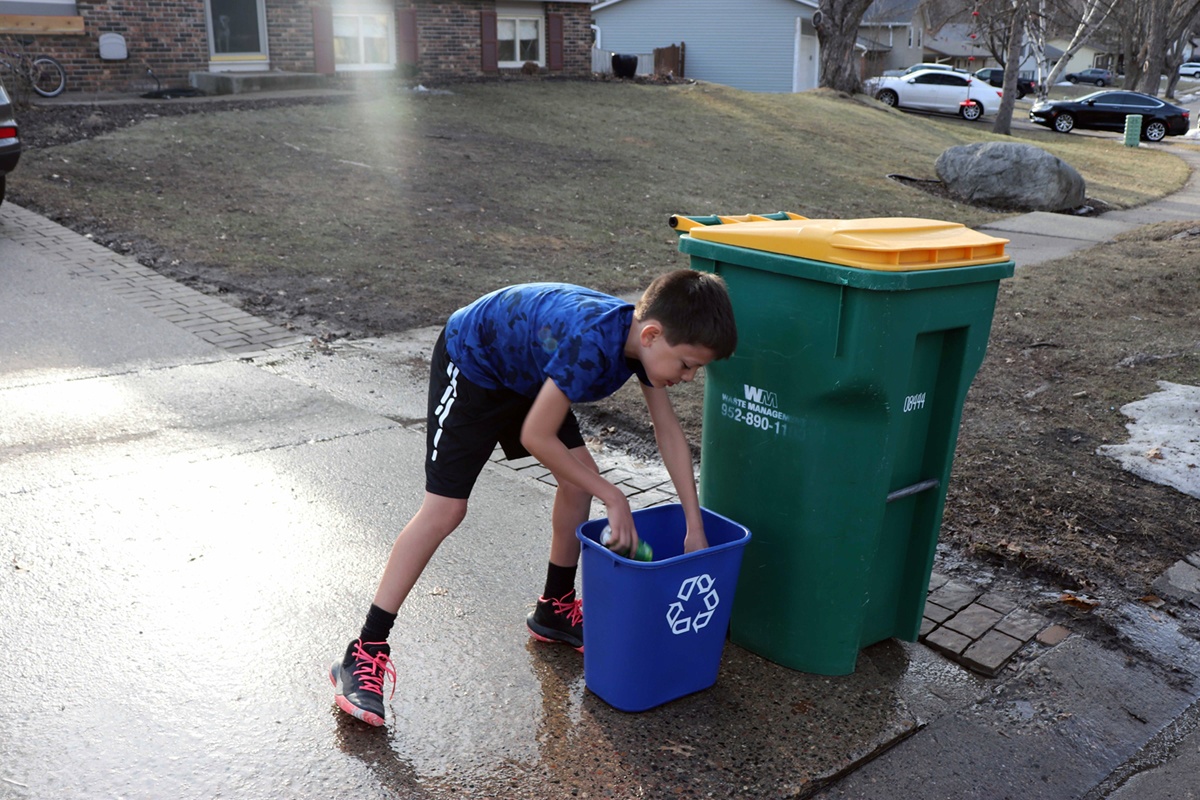SCORE Programs Making a Difference
In the world of disposable masks and takeout bags—we built up a lot of waste. Over 3 million tons of waste is generated annually just in the Twin Cities metro area, and in 2020 the amount of garbage that ended up in landfills increased by over 30%, according to the Minnesota Pollution Control Agency (MPCA). Even before 2020, statewide waste increased by 250,000 tons between 2018 and 2019.
Over 30 years ago, Minnesota legislators recognized our growing waste problem and created SCORE—the program provided counties with grants to address waste through reuse and recycling. SCORE quickly became a cornerstone for greater Minnesota communities, equipping them with the resources to meet state waste and recycling goals.
Impacting Communities
Properly managing waste is an essential function of Minnesota counties that keeps hazardous waste out of waterways and protects local lands.
South of the Twin Cities, Dakota County is stretching its SCORE funding to include recycling education for residents and special collection events for challenging materials. Last year it coordinated 29 special collections for residents, diverting an estimated 215 tons of recyclable or reusable material from landfills, a 35% increase over the prior year. The materials the county collected included 73 tons of shredded paper and 38 tons of mattresses.
Dakota County also holds events to promote reuse. Residents have helped families in need by participating in a winter gear swap, a toy swap, an athletic equipment donation drive, and a mattress collection.
SCORE also makes a difference in our schools. Dakota County’s School Waste Prevention & Recycling Grant Program provides resources to help all schools educate students and staff on waste management best practices and implement projects to donate food, prevent food waste, and start or improve recycling or organics collection. Of the 175 K-12 schools in Dakota County, 47% have participated in the program.
Dwindling Funds
Today SCORE is in jeopardy as over 30% ($27.2 million) of the solid waste management tax, the primary source of funding, is being diverted to the state’s General Fund instead of being used for its intended purpose. In addition, the state has never adjusted funding for inflation.
These funding deficits leave many counties struggling to support existing waste-related programs and unable to make additional reductions. The 2019 SCORE Report found recycling and composting rates across the state fell by nearly 4% between 2018 and 2019, and, in Greater Minnesota, rates have decreased by over 7% since 2014.
Fortunately, our state’s historic $9.25 billion budget surplus provides an opportunity to recapture diverted funds. Now is the moment for legislators to ensure counties have the means to reduce their landfill footprint, focus on the proper disposal of toxic waste, and help protect our water, air quality, and land.
More Than Restoring County Programs
Beyond providing counties with funding to meet or exceed waste-related goals, SCORE grant investments will multiply economic and environmental benefits. According to the MPCA, recycling supports more than 60,000 jobs in our state, paying almost $3.4 billion in wages and adding nearly $15.7 billion to Minnesota’s economy.
Each ton of garbage that ends up in a landfill generates 2.94 tons of climate change-causing pollution, and over half of the recyclable materials disposed of in Minnesota end up in the garbage. We should be doing more, not less, to reduce waste. We need to act now to mitigate the impacts of this growing problem while supporting Minnesota communities.
To find out how you can connect with your county waste and sustainability officials, contact our Local Government Program Manager, John Anderson.
